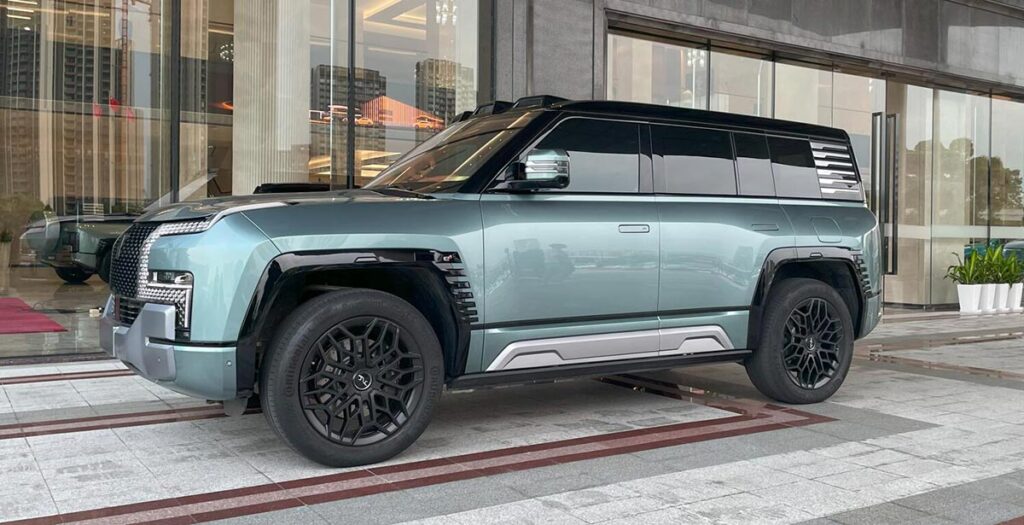The growth of EVs is a revolution that many people don’t understand, but once you share the data and the reality, they realize there is nothing to be challenged, a BYD executive said.

(BYD’s ultra-luxury Yangwang U8. Image credit: CnEVPost)
The European Union formally launched an anti-subsidy investigation into electric vehicles (EVs) from China earlier this month, sparking widespread concern. An executive from BYD (OTCMKTS: BYDDY), China’s biggest EV maker, expressed how the company sees the move.
BYD will keep pushing for strong growth in Europe even as an anti-subsidy investigation begin in the region, said Stella Li, BYD’s executive vice president, as quoted by Bloomberg in an October 7 story.
“We are a publicly traded company that needs to be managed with transparency and open to sharing information,” Li said in an interview with Bloomberg in Santiago, Chile. ” So we don’t worry about any investigation going on in Europe,” She said.
BYD will share all information requested by EU authorities to eliminate any confusion about its production, she said.
The development of EVs is a revolution that a lot of people don’t understand and they’re worried, Li said.
“But once you share the data, the reality, I think they’ll see that there is nothing to be challenged,” she said.
European Commission President Ursula von der Leyen announced plans on September 13 to launch an anti-subsidy investigation into EVs from China, and the bloc officially launched the action on October 4.
The investigation will first determine whether China’s EV value chain is benefiting from subsidies and whether such subsidies are causing or likely to cause economic harm to EU EV producers, according to an EU announcement on October 4.
“The investigation will be concluded within maximum 13 months of initiation. If legally warranted, any provisional anti-subsidy duties may be imposed by 9 months after initiation, with any definitive measures to be imposed up to 4 months later or within 13 months of the initiation of the investigation,” the announcement read.
China continued to express its opposition to the EU’s move, with the Ministry of Commerce saying it would closely monitor the European side’s follow-up investigation procedures and firmly defend the legitimate rights and interests of Chinese companies.
It’s worth noting that the EU’s investigation will cover not only EVs from Chinese carmakers, but also such models from foreign carmakers.
The EU has asked BMW to provide information about the BMW iX3 cars, which it exports from Chinese production facilities, as part of the EU’s investigation, according to an October 6 Bloomberg report.
On September 26, Bloomberg cited people familiar with the matter as saying that Tesla (NASDAQ: TSLA) was one of the companies found to be potentially benefiting from Chinese subsidies during the EU’s evidence-gathering process.
Tesla is one of the world’s biggest EV makers, with a factory in Shanghai that not only supplies local customers but is also an export hub.
The US EV maker delivered 435,059 vehicles globally in the third quarter, up 26.53 percent from a year earlier but down 6.67 percent from the second quarter, according to data released on October 2.
BYD’s passenger vehicle sales in the third quarter included 431,603 battery electric vehicles (BEVs), which are similar to Tesla’s vehicles, and 390,491 plug-in hybrid vehicles (PHEVs), according to data it also released on October 2.
“We’re not really interested in competing to see who is bigger,” BYD’s Li said in the latest Bloomberg interview.
“We want Tesla to be very successful because the more they are, it will help educate people on electrification,” Li said.
Analysts downplay impact of EU anti-subsidy probe on EVs from China

